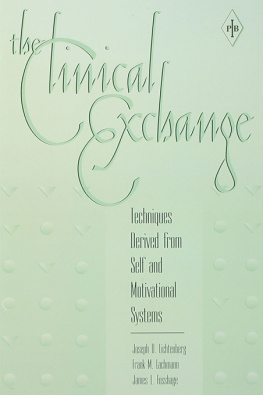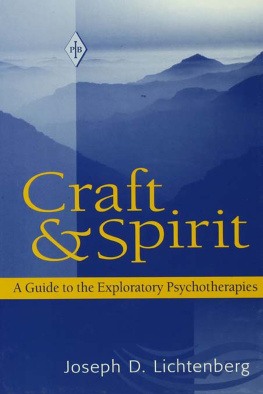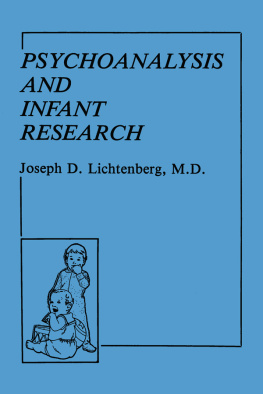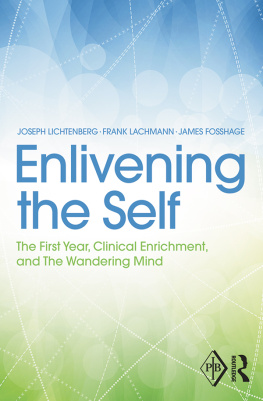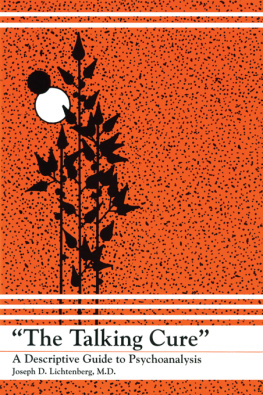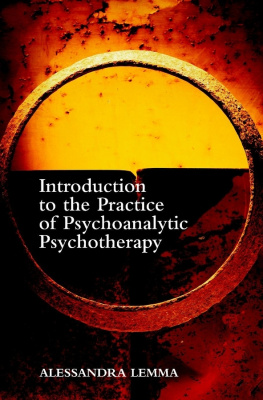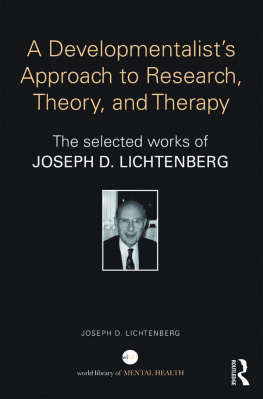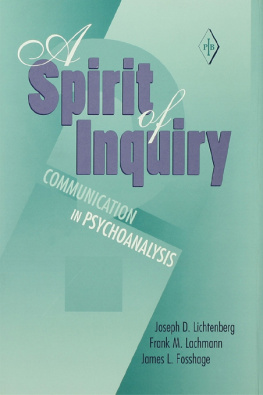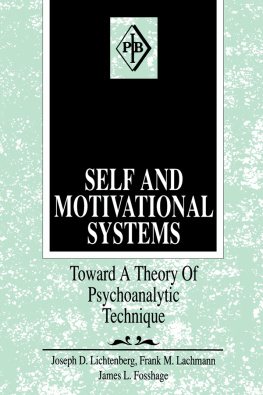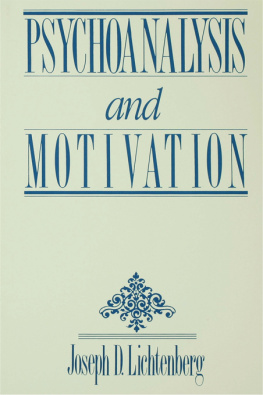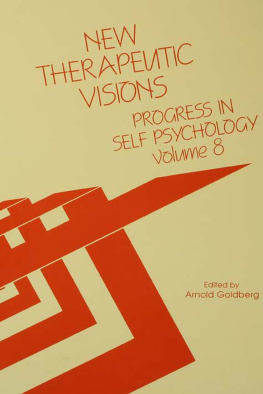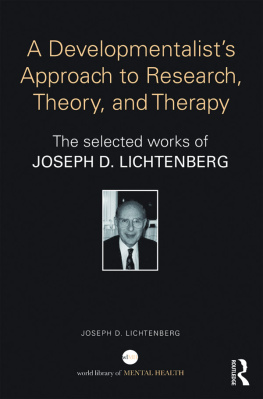
THE CLINICAL EXCHANGE
Techniques Derived from
Self and Motivational Systems
Psychoanalytic Inquiry Book Series
Volume 16
 | Psychoanalytic Inquiry Book Series |
Vol. 16: The Clinical Exchange: Techniques Derived from Self and Motivational SystemsJoseph D. Lichtenberg, Frank M. Lachmann & James L. Fosshage
Vol. 15: Understanding Therapeutic Action: Psychodynamic Concepts of CureLawrence E. Lifson (ed.)
Vol. 14: Affects as Process: An Inquiry into the Centrality of Affect in Psychological LifeJoseph M. Jones
Vol. 13: Self and Motivational Systems: Toward a Theory of Psychoanalytic Technieque-JosephD. Lichtenberg, FrankM.Lachmann & James L. Fosshage
Vol. 12: Contexts of Being: The Intersubjective Foundations of Psychological LifeRobert D. Stolorow & George E. Atwood
Vol. 11: Cancer Stories: Creativity and Self-RepairEsther Dreifuss-Kattan
Vol. 10: Psychoanalysis and MotivationJoseph D. Lichtenberg
Vol. 9: Female Homosexuality: Choice Without Volition-Elaine V. Siegel
Vol. 8: Psychoanalytic Treatment: An Intersubjective ApproachRobert D. Stolorow, Bernard Brandchaft & George E. Atwood
Vol. 7: The Borderline Patient: Emerging Concepts in Diagnosis, Psychodynamics, and Treatment, Vol. 2James S. Grotstein, Marion F. Solomon & Joan A. Lang (eds.)
Vol. 5: Towards a Comprehensive Model for Schizophrenic Disorders: Psychoanalytic Essays in Memory of Ping-Nie Pao, M.D.David B. Feinsilver
Vol. 4: Structures of Subjectivity: Explorations in Psychoanalytic PhenomenologyGeorgeE.Atwood & Robert D. Stolorow
Vol. 2: Psychoanalysis and Infant ResearchJoseph D. Lichtenberg
Vol. 1: Reflections on Self PsychologyJoseph D. Lichtenberg & Samuel Kaplan (eds.)
THE CLINICAL EXCHANGE
Techniques Derived from
Self and Motivational Systems
Joseph D. Lichtenberg
Frank M. Lachmann
James L. Fosshage

1996 by The Analytic Press, Inc., Publishers
First paperback printing 2001.
All rights reserved. No part of this book may be reproduced in any form: by photostat, microform, retrieval system, or any other means, without the prior written permission of the publisher.
Published by The Analytic Press, Inc.
101 West Street, Hillsdale, NJ 07642
www.analyticpress.com
Library of Congress Cataloguing-in-Publication Data
Lichtenberg, Joseph D.
The clinical exchange : techniques derived from self and motivational systems / Joseph D. Lichtenberg, Frank M. Lachmann, James L. Fosshage.
A dlialectical-constructivist view / Irwin Z. Hoffmann
p. cm. (Psychoanalytic inquiry book series ; v. 16)
Includes bibliographical references and index.
ISBN 0-88163-363-1
1. Psychotherapist and patient. 2. Psychoanalysis.
3. Interpersonal communication. I. Lachmann, Frank M.
II. Fosshage, James L. III Title. IV. Series
RC480.8.L534 1996 First pbk printing 2001
616..89--dc20
96-28332
Printed in the United States of America
10 9 8 7 6 5 4 3 2
To respond verbally, emotionally, and behaviorally in the therapeutic situation, with a maximal desired effectiveness and minimal untoward consequences, requires an artistic kind of skill which, however, must be based on principles that rest on a firm scientific fundament.
Ernest Wolf (1995)
Contents
Acknowledgments
I am greatly indebted to Frank Lachmann and James Fosshage, my coauthors, for their willingness, actually eagerness, to think and work together with me to carry forward ideas each of us has had independently. I began my series of explorations by reviewing the body of infant research then available and proposing a critique of psychoanalytic developmental theory. I then offered a theory of five motivational systems and a revised theory of affects. I suggested the application of these concepts to a psychology of the self through an empathic mode of perception and the use of model scenes jointly constructed by analyst and patient. Frank Lachmann added his extensive exposure to infant studies derived from his collaborations with Beatrice Beebe and their valuable contributions to communication between infant and mother and to self and mutual regulation. Jim Fosshage brings to our collaboration an extensive knowledge of research on dreams and a careful reconsideration of transference and countertransference. Each of us is a clinician with years of experience in training and teaching, and the author of many contributions to analytic theory and practice. In our presentation we have attempted to speak in a unified voice. Franks felicitous phrasing and Jims continuous call for clarity in terminology contribute to each chapter regardless of the principal author.
Each of us has learned from many colleagues and sources as evidenced by our reference list. We want to acknowledge the personal support we receive continuously from Ernest Wolf, Alan Kindler, Beatrice Beebe, Susan Lazar, Robert Stolorow, John Lindon, Rosemary Scgalla, Arthur Malin, and Estelle and Morton Shane.
In our effort to draw on recent developments in neurophysiology we received direct help from June Hadley, Fred Levin, and Allan Schore. Similarly we draw on Schores and Joseph Joness studies of affects. We have greatly benefited from the many opportunities we have had at meetings and in publications to present our conceptions of model scenes, motivational systems, ten principles of technique, the interpretation of dreams, transference, and the modes of therapeutic action. The questions we have been asked and the criticisms we have received have been a source of invaluable challenge. We are especially indebted to Lawrence Friedmen for his remarkable essay Main Meaning and Motivation and to the other contributors to Psychoanalytic Inquiry, Volume 15, Number 4: Joseph Weiss and John Gedo, who raised additional questions; Kay Campbell, Donald Silver, Kerry and Jack Novick, Mary Mittlestaedt, and Ann Walton, who put our assumptions to the test of infant observation; Philip Ringstrom, who applied our approach to brief psychotherapy; and Estelle and Morton Shane, who tested whether our conceptions could explain the feminine dilemma of generativity vs. personal ambition. In a similar vein, Paul Stepansky has been more than our editor, he has been an excellent conceptual critic. The other professionals of The Analytic Press, especially Nancy Liguori and Eleanor Kobrin, have earned our gratitude for their skill. Amy Lichtenberg Vides labored long and patiently to transcribe my scribbles into readable type and convert Frank and Jims Apple into our PC.
Finally, our book centers on Nancy and her analyst, or on an analyst and his patient, Nancy. Customarily a statement is made to acknowledge our debt to our patients for the opportunity they present us to learn, teach, and advance science. A difficulty with this convention is that the patient is treated as a specimen to be exposed and dissected. If, as in our book, the analyst presents his exact words, interventions, and intentions, he is equally exposed as a specimen for supervision and second guessing. Were this objectification (Broucek, 1991) of patient and/or analyst to occur, a major purpose of our book would not be achieved. We hope to present the subjective experience of an analyst and an analysand working together in the special dynamic intersubjective context of a therapeutic exploration. All three of us wish therefore to acknowledge our gratitude to Nancy and her analyst for allowing the authors and you, the reader, to sense into their experience of seeking, finding, losing, and refinding the inner world of the other.
Next page
